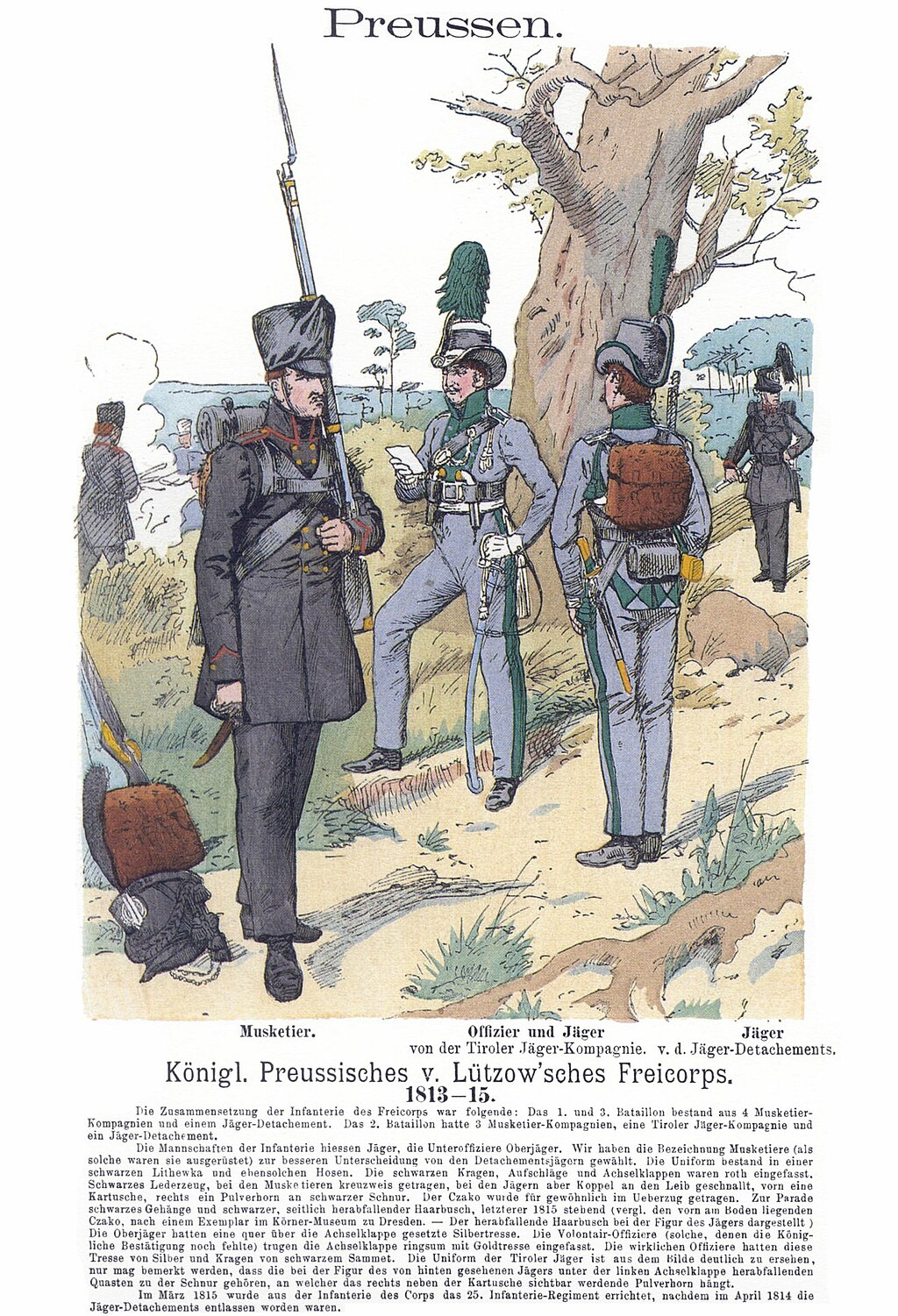Salvete Omnes,
the French Army of the North Right Wing's operation in pursuit of the Prussians army mauled at Ligny on the 16th of June, 1815 and the battle of Wavre (18th-19th June 1815) are some of the mostly forgotten military operations in the history of the Napoleonic wars.
I am not going to study the battle itself but the more about the curious events surrounding the communications or lack of between Napoleon's army main body and its right wing under marshal Grouchy and the consequences of these that have led to the defeat of Napoleon at Waterloo and second abdication of the French ruler.
Grouchy, gallant cavalryman and then commanding Napoleon's Army of the North-Right Wing, perhaps 30-33 thousand officers and soldier - consisting of remnants of III, IV Corps infantry & 7th Cav. Division, and 1st (under general Pajol) & 2nd (general Exelmans) Cavalry Corps - was supposed to prevent the Prussians under Blucher from joining with Wellington's allied army and open the road onto Brussels, the English being pursued by Napoleon.
Astute and skilled Prussian commander, marshal Blucher, marched his 3 corps off to Waterloo, while his general Theilemann's Pussian III Corps ( 15-20 thousand officers and soldiers grouped in 3 infantry brigades and 2 cavalry brigades, including uhlans, landwehr, hussars) was to defend the fords and bridges in the Dyle River valley, concentrating the defense on the area of the town of Wavre.
Grouchy's forces, lacking in artillery supremacy in the strong points, contacted the enemy outposts on the 18th morning and pursuant to the understanding of Napoleon's intentions French Right Wing advanced slowly on the Prussians in the late afternoon of June 18th.
The roads and ground were terribly soaked with the rains of storms of the 17th of June, making marching and advancing more difficult to the soldiers and horses.
Returning to the Napoleon's headquarters at the Caillou farm, within his staff there was this veteran Polish officer in French service - Jerzy Zenowicz, Despot coat of arms (1782-1853) - who was attached to the staff and 'was ordered not to leave Napoleon's side for a moment.'
Sometimes after 9AM, June 18, 1813, Napoleon observed both armies concentrated on the future battlefield, and called our Zenowicz to deliver his message to Grouchy near Wavre. They returned to the farm at 10 AM, and due to certain indecision and tardiness in drafting the orders by the staff scribes and the head of staff marshal Soult (whereas unfortunately the brain of the Grand Army the best chief of staff marshal Berthier was not part of this operation, having died on June 1, 1815) our aide-de-camp Zenowicz left the headquarters on a rather inferior horse around noon, when the opposing armies joined the struggle.
Since Napoleon insisted that Zenowicz would take the longer route via Gembloux. The difficult terrain, soaked by rain and full of debris. lack of maps and guidance caused this mounted messenger to travel for almost 4 hours until he was able to report to marshal Grouchy circa 4pm.
Zenowicz gave marshal his dispatch - where Soult stated: ''[..] His Majesty is going to attack the English army [..] at Waterloo; also that His Majesty desires that you direct your movements on Wavre in order to approach us [Waterloo], come into our area of operations and tie in your communications, pushing before you the corps of the Prussian army which have taken this direction and which could stop at Wavre, where you are to arrive as soon as possible. You are to follow the enemy columns which are on your right with some light troops in order to observe their movements and collect up their stragglers. Inform me immediately of your deployment and your march, as well as in the news you have of the enemy and do not hesitate in coming into communications with us. The emperor wants to receive your news often.'
Grouchy, when explaining his moves after reading this dispatch in his writings years after the Waterloo campaign, stated that he read the dispatch - la bataille est gagnee (the battle is won) whereas in fact the writing stated - la bataille est engagee (the battle has started). His army was 15km (lass than 10 miles) from Waterloo and his army could have changed the outcome of the Waterloo battle if started marching, especially his numerous cavalry, at 4PM towards His Majesty, the Emperor. But it was not to be.
Our Zenowicz witnessed the heated verbal fight between general Gerard and marshal Grouchy, where Gerard was mad at the indecision displayed by Grouchy accusing marshal of causing a potential defeat of the French.
Grouchy, instead of marching towards the cannonade at Waterloo, sent his men to attack Wavre and Limal crossing, mistaken in his understanding of the Napoleon's orders. Another French officer summarized these afternoon attacks - 'badly planned, feebly executed and the ground badly studied.' (Grouchy's Waterloo).
The battle continued until the morning of June 19 when captain Dumonceau brought to Grouchy the news of the Waterloo defeat.
Facing victorious enemies and threatened with encirclement and cut off from their French base, marshal Grouchy executed a skillful retread of his army to Paris, via Namur.
 |
| Despot coat of arms |
enjoy
Valete










No comments:
Post a Comment